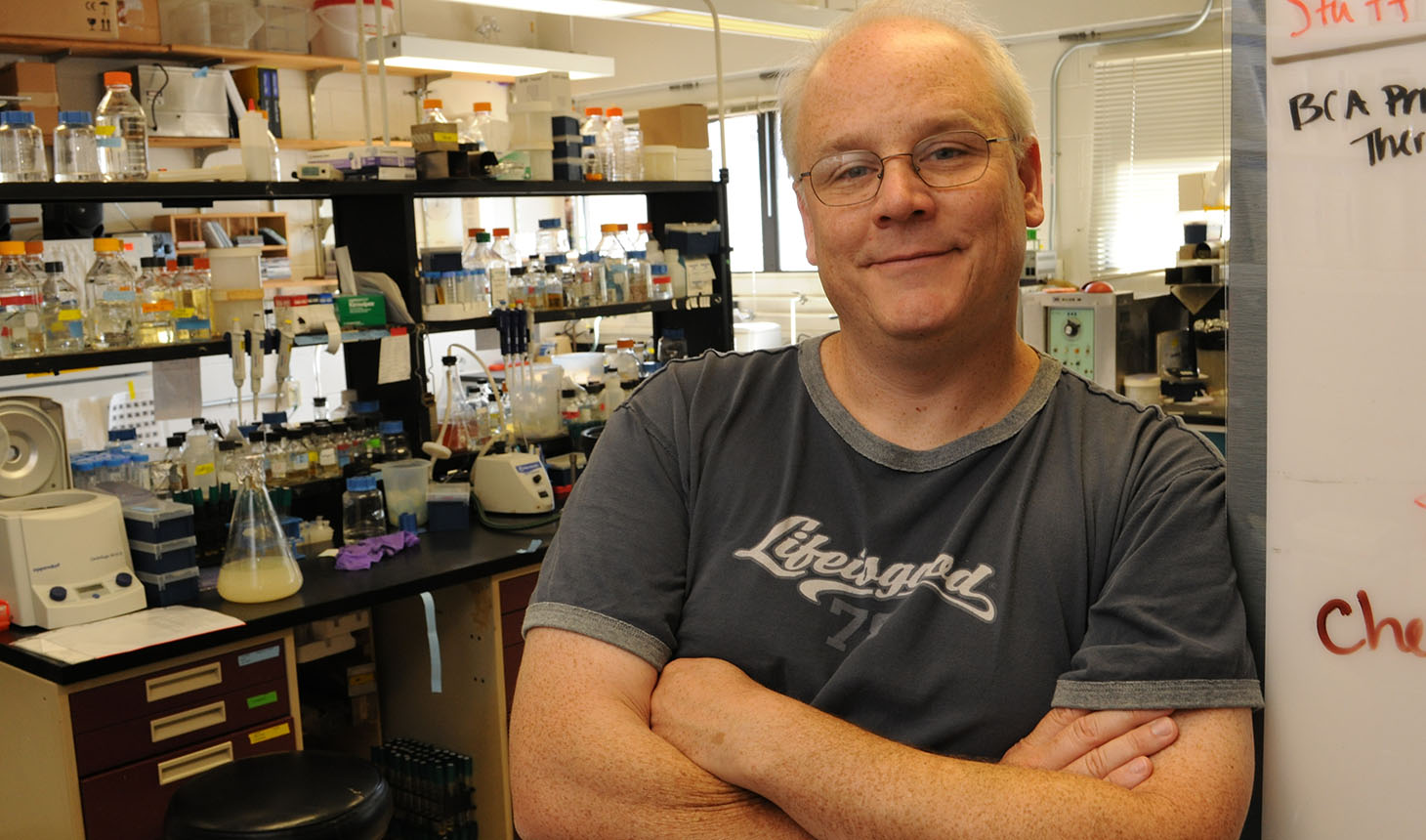The Tennessean – Article interviews Diane Gilbert-Diamond, a Professor of Community and Family Medicine and the lead researcher on a recent study that suggesting “a possible link between kids having TV in the bedroom and more sedentary behavior, snacking and exposure to food ads, leading to weight gain.”
Articles by: Geisel Communications
Mental Health Screening in Primary Care Helps Veterans
Center for Advancing Health – Assistant Professor of Psychiatry Brian Shiner comments on how a new practice is helping patients with mental health disorder. “In patients who actually have the disorder, there is good evidence that the intervention improves important health outcomes and benefits substantially outweigh harm,” says Brian. “Therefore, we assume that we can help to improve veterans’ health by following up screens with clinical exams and delivering these treatments when they are indicated.”
O’Toole Receives Prestigious NIH MERIT Award
Geisel School of Medicine at Dartmouth microbiologist George O’Toole has received a MERIT award from the National Institutes of Health that will provide up to 10 years of funding for his research on bacterial biofilms.
Regular Marijuana Use Bad for Teens Brains
Business Standard – “Recent studies suggest that this relationship between marijuana and mental illness may be moderated by how often marijuana is used and potency of the substance,” says Professor of Psychiatry Alan Budney. “Unfortunately, much of what we know from earlier research is based on smoking marijuana with much lower doses of THC than are commonly used today,” Budney said.
The Biggest Misconceptions People Have About the Medical Profession
Wall Street Journal – Professor of Medicine H. Gilbert Welch is interviewed on common misconceptions regarding health care professionals: “The idea that only your doctor can tell whether you are healthy or not is an unfortunate side-effect of our current emphasis on preventive medicine … Don’t let doctors’ machines and tests define health. That’s a recipe to make you sick. How you feel matters.”
This is What Pot Does to the Teenage Brain
TIME – “Addiction, car accidents, chronic bronchitis, and decreased life achievement are the most likely among the potential consequences of teenage marijuana consumption,” according to new research by Alan Budney, a professor of psychiatry at Dartmouth.
Without Breaking a Sweat, a Doctor Tracks Ebola and Other Epidemics
The New York Times – The call came in on a Friday morning, as Dr. Michael S. Phillips worked at his desk at NYU Langone Medical Center in Manhattan. A patient had arrived in the emergency room burning with fever after returning from a trip to Liberia.
Everything You Need to Know About the Ebola Virus Outbreak
Prevention – Interview with Dr. Tim Lahey, infectious disease specialist and associate professor of both medicine and microbiology and immunology at Geisel.
Will Big Data Answer Big Questions on Health?
Science Friday – Jason Moore, the Third Century Professor at Geisel, is interviewed in this radio piece on the effort to catalog the DNA of thousands of different people. Moore comments that “gathering data is only the first step,” as the clue is, “asking the right questions of that information.”
Stimulation Device Shows ‘Immediate’ Impact on Depression
Medscape – Associate Professor of Psychiatry and Surgery Paul Holtzheimer is interviewed on the encouraging results of a new low-strength electromagnetic field device being tested, noting the improvement in mood for those with major depressive and bipolar disorders.
